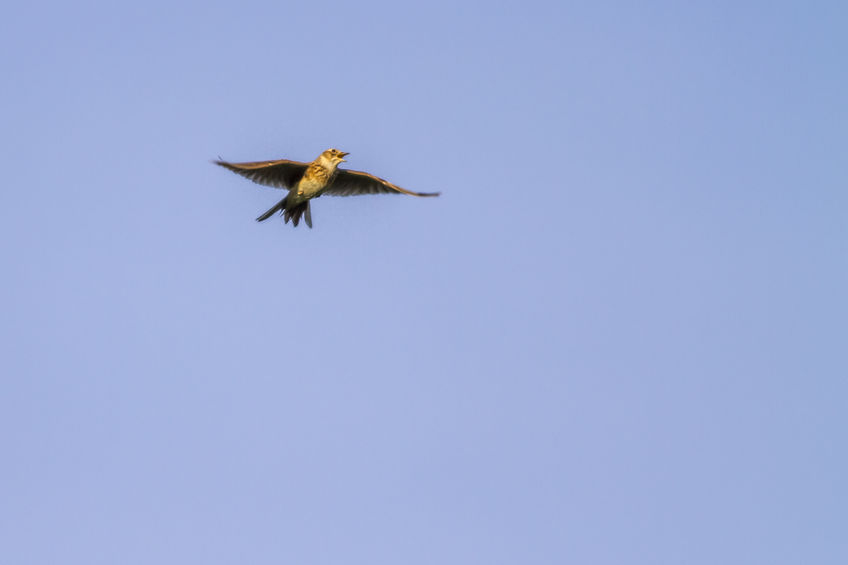
UK farmers have the potential to help reverse the dramatic declines of farmland birds over the past 40 years if given the funding and support, according to a new study.
New research, funded by Natural England and Defra, and published in the journal Animal Conservation, used six years of survey data to track changes in the abundance of birds on farms.
The study involved over 60 farms under Higher Level Stewardship (HLS) agreements in three English regions between 2008 and 2014.
It revealed that 12 of the 17 priority farmland bird species showed a positive change in abundance, going against the 56% decline in the number of farmland birds nationally since 1970.
The Farmland Bird Index increased by between 31% and 97% in different regions under HLS during 2008-2014.
Delivering increases
The average response of 17 priority bird species to HLS management was an increase in abundance of 163% (i.e. bird numbers more than doubled).
Within this, it is noted that High Level Stewardship farms have increased farmland bird numbers by 50 per cent in East Anglia and Oxfordshire and by 120 per cent in West Midlands.
Results from farmers and land managers working on HLS agri-environment schemes were compared with farms in the UK’s wider farmed landscape.
Results show farmers have the potential to deliver large and rapid population increases in a number of struggling farmland birds, such as skylark, starling and linnet, if they are given the funding and support to manage their land in a wildlife-friendly way.
Dr Will Peach, RSPB head of research delivery section said the UK has experienced a "massive loss" of farmland wildlife since the 1970s, and Defra’s Wild Bird Indicators published last month shows this loss has continued during the last 5 years.
'Boosting biodiversity'
Outside the EU, the Government plans to shift farm support so the focus is on rewarding farmers for public goods, such as protecting and enhancing the environment.
Defra Secretary Michael Gove said: "Our farmers are the original friends of the earth and these results clearly demonstrate the vital role they play in protecting our wildlife and boosting biodiversity.
"Leaving the EU gives us the opportunity to do more to protect our environment and wildlife, supporting farmers to manage the rich habitats and precious species under their stewardship in a more sustainable way.
"These results show that with the right management, and more targeted support for farmers, we can reverse the decline in numbers of our birds."
Mr Gove has announced that future farm subsidies must be assessed on environmental and public benefits the land brings rather than simply how much land is owned.
He said farmers should get money based on how well they protect the environment and how well they enhance rural life, despite some concerns in the industry that the government is favouring the environment at the expense of food production.
